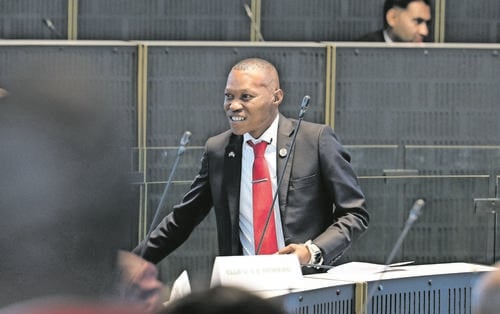The Department of Home Affairs says there is no update on president Cyril Ramaphosa’s plan for digital nomad visas in South Africa – and that offering visas on arrival for tourists is out of the question.
Responding to a parliamentary Q&A this week, home affairs minister Aaron Motsoaledi was asked whether the country would consider issuing visas on arrival for priority tourism markets as a way to boost tourism.
Motsoaledi said there is no provision for visas on arrival in South Africa’s immigration laws, so his department cannot issue them.
When asked about progress in developing ‘digital nomad’ visas to make it easier for foreign skills to settle and work in South Africa, the minister was equally as reticent to answer, saying only that a report is being compiled.
“(The) president announced that he had appointed former Department of Home Affairs Director-General, Mr Mavuso Msimanag to Review the Visa Regime. I, therefore, request (you) await the outcomes of the report,” he said.
Visas for digital nomads are travel permits that legalise the status of travelling professionals. Like tourist visas, they are easy to obtain and do not require long paperwork and a work contract. However, they allow for longer stays.
There are currently over 130 countries that are exempt from visa requirements in South Africa for travel and tourism purposes. However, these exemptions are for limited periods, ranging between 30 and 120 days, depending on the passport being used to travel, and do not grant permission to work in the country.
In his state of the nation address in February, president Cyril Ramaphosa said that the government was looking to adopt remote-working ‘digital nomad’ and start-up visas as part of a push to attract more skilled workers.
He also said that the country would introduce other visa reforms to make it easier for people to enter the country.
Since making the announcement, little has been done to execute these plans, however.
The government has published a critical skills list – with the latest revision published in August – which expands the jobs and skills available to foreign workers to enter the country.
However, fumbling by home affairs led to even this route becoming a ‘nightmare’ for businesses, as bureaucracy and red tape has severely hampered the process of getting approvals.
Other changes that have slowly come into effect include the expansion of the eVisa programme, which was activated in 14 countries by March 2022, including China, India, Kenya and Nigeria.
The e-Visa system allows tourists and visitors to South Africa to apply for their visas online. The applications are sent to a central adjudication hub for approval while applicants sit in the comfort of their homes. This will result in the issuing of virtual visas.
The department said in April that it wanted to expand the eVisa programme beyond the 14 countries already activated – but this too seems to have hit a roadblock as no additional countries have been added since.
Read: Australia increases visa quotas – here are some popular routes for skilled South Africans





















Discussion about this post